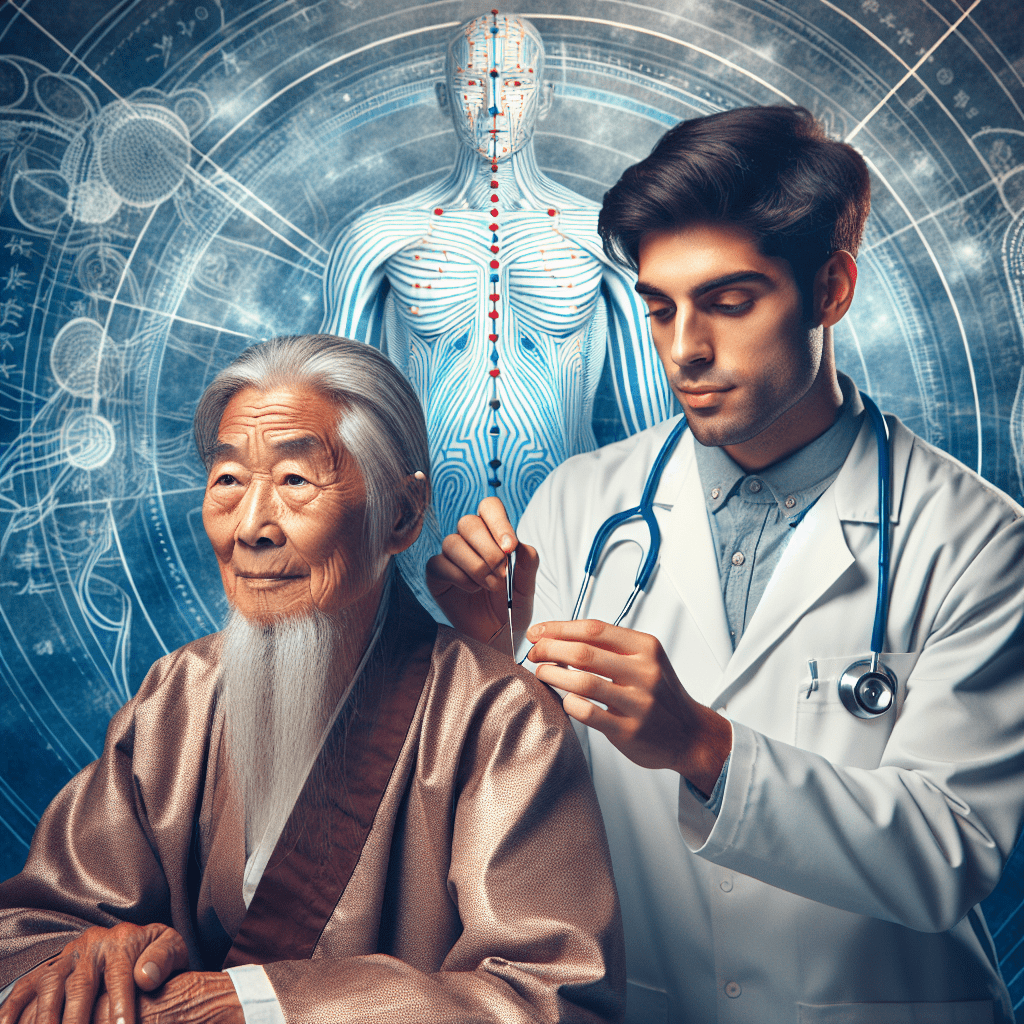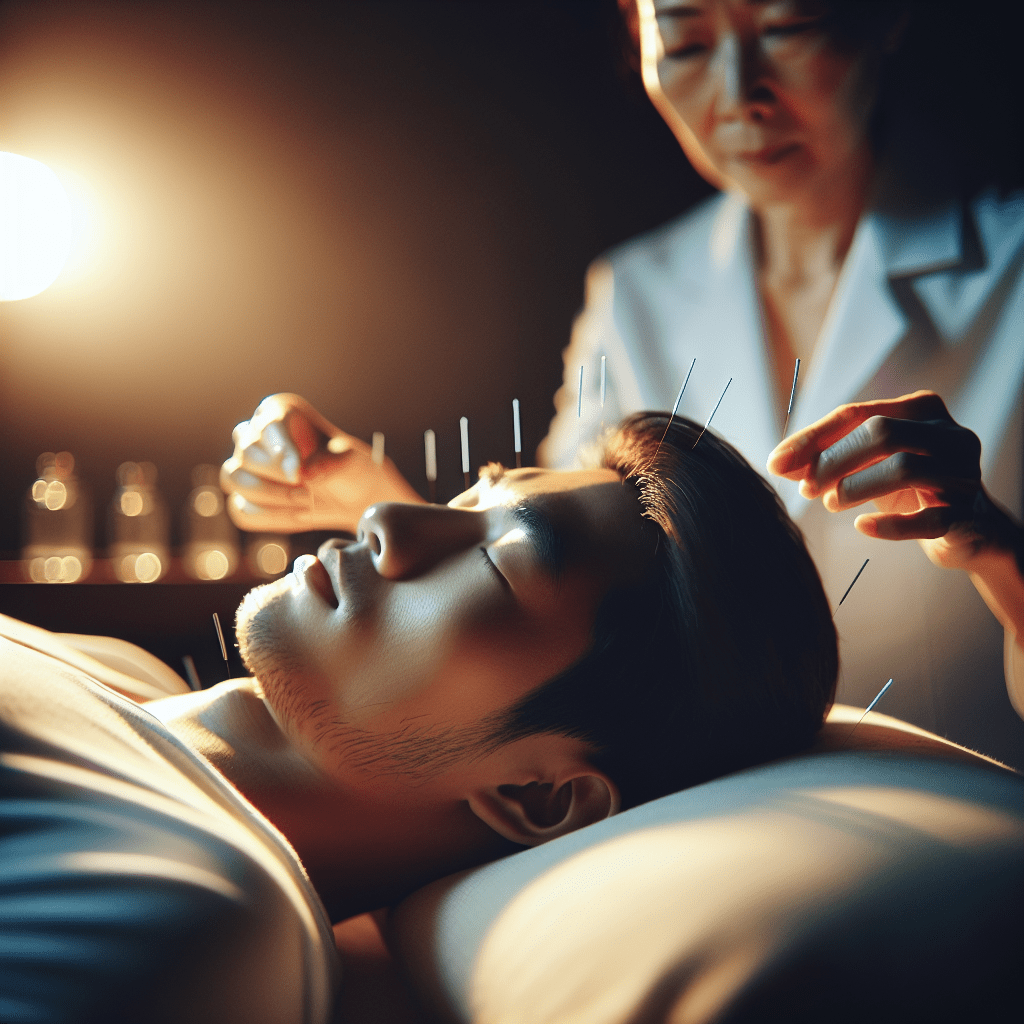In our fast-paced, high-stress modern world, anxiety disorders have become increasingly common, affecting millions of people worldwide. As more individuals seek relief from persistent worry and fear, many are turning away from conventional pharmaceutical approaches and exploring ancient healing practices instead. Among these time-tested treatments, acupuncture stands out as a particularly promising option for anxiety relief.
Acupuncture, a cornerstone of Traditional Chinese Medicine (TCM) dating back over 2,500 years, operates on the principle that health depends on the balanced flow of vital energy—known as Qi—throughout the body. According to this Eastern wisdom, anxiety and other mental health conditions arise when this energy becomes blocked or imbalanced. By inserting ultra-thin needles at specific points along energy pathways called meridians, acupuncturists aim to restore harmony and promote healing.
What was once considered alternative or complementary in Western healthcare systems is now gaining substantial scientific support. The growing interest in holistic approaches to anxiety management reflects a broader shift toward treatments that address not just symptoms but the whole person—body, mind, and spirit. This alignment with natural healing processes has particular appeal for those concerned about the side effects and dependency issues associated with anti-anxiety medications.
The Evidence: How Acupuncture Measures Up Against Pharmaceuticals
Key Insight: Scientific research is now confirming what Traditional Chinese Medicine practitioners have long understood about acupuncture’s effectiveness for anxiety management.
Recent research has begun to validate what practitioners of Traditional Chinese Medicine have known for centuries: acupuncture can be remarkably effective for anxiety relief. A meta-analysis of 20 randomized controlled trials found that acupuncture significantly reduced anxiety symptoms compared to control groups, with effects comparable to conventional treatments.
What makes acupuncture particularly attractive as an anxiety treatment is its favorable side effect profile. While pharmaceutical interventions like benzodiazepines and SSRIs often come with unwanted effects—including drowsiness, weight gain, sexual dysfunction, and dependency—acupuncture typically produces minimal adverse reactions. The most common side effects are minor bruising or temporary soreness at needle insertion sites, a small price to pay compared to the potential downsides of medication.
“Patients who received acupuncture experienced improved mental and physical well-being,” notes one recent study, highlighting the dual benefits of this approach. Beyond just reducing anxiety symptoms, participants reported better sleep quality, increased energy levels, and an enhanced sense of overall wellness—benefits that extend far beyond the targeted relief that medications typically provide.
For many people with anxiety disorders, the fear of becoming dependent on medication presents its own source of stress. Acupuncture offers a refreshing alternative that works with the body’s natural healing mechanisms rather than introducing external chemicals. This natural approach resonates particularly well with health-conscious individuals who prefer holistic wellness strategies.
Clinical studies continue to show promising results. One investigation revealed that a single acupuncture session produced clinically meaningful improvements, with average reductions of 2.2 units in anxiety, 2.1 in stress, and 1.4 in pain measurements. These immediate effects challenge the common assumption that alternative therapies work more slowly than conventional treatments.
Perhaps most impressive is acupuncture’s effectiveness for severe anxiety conditions like Generalized Anxiety Disorder (GAD). Research focusing specifically on college students with GAD—a population particularly vulnerable to anxiety—demonstrated significant symptom reduction and stability over time, suggesting that acupuncture’s benefits are not merely temporary but can lead to lasting improvements.
The Science Behind the Needles: How Acupuncture Calms the Anxious Mind
The Biological Basis: Acupuncture’s effects on anxiety involve multiple physiological systems, from hormone production to neurotransmitter regulation.
The mechanisms through which acupuncture alleviates anxiety are multifaceted and increasingly well-understood. Far from being merely a placebo effect, research has identified several physiological pathways through which these ancient techniques influence our modern nervous systems.
One primary mechanism involves hormonal regulation. Studies have shown that acupuncture helps lower cortisol levels—our primary stress hormone—while simultaneously increasing the production of endorphins and serotonin, the body’s natural mood elevators. This hormonal rebalancing creates a biochemical environment less conducive to anxiety and more supportive of emotional well-being.
Neurotransmitter modulation represents another crucial pathway. Acupuncture has been shown to increase levels of gamma-aminobutyric acid (GABA), the main inhibitory neurotransmitter in our central nervous system. Higher GABA levels have a calming effect on neural activity, helping to quiet the excessive brain stimulation associated with anxiety disorders. This mechanism parallels how many anti-anxiety medications work, but without the chemical side effects.
The treatment also appears to affect the autonomic nervous system directly, helping shift the body from the sympathetic “fight-or-flight” state (which dominates during anxiety) toward the parasympathetic “rest-and-digest” mode. This rebalancing helps reduce physical symptoms of anxiety like rapid heartbeat, shallow breathing, and muscle tension.
Perhaps most fascinating is acupuncture’s influence on brain activity patterns. Neuroimaging studies using functional MRI have observed that acupuncture modulates activity in the limbic system—particularly the amygdala and hippocampus—regions intimately involved in emotional processing and stress responses. By normalizing activity in these areas, acupuncture helps create more balanced emotional reactions to potential stressors.
The evidence for these mechanisms continues to grow. Research shows that acupuncture intervention significantly reduces oxidative stress markers, such as reactive oxygen species (ROS), by upregulating protective factors. This is particularly relevant since oxidative stress has been implicated in the development and maintenance of anxiety disorders.
Additionally, acupuncture appears to support neuroplasticity—the brain’s ability to form new neural connections and adapt. One study suggests that “acupuncture may play a potential preventive role by regulating hippocampal neuroinflammatory response,” indicating that the treatment may not only alleviate current symptoms but also help prevent future anxiety episodes by creating more resilient neural pathways.
The collective research suggests that acupuncture doesn’t just mask anxiety symptoms but addresses multiple underlying physiological factors contributing to anxiety disorders. This comprehensive approach may explain why many patients report deeper and more sustainable relief than they experience with single-mechanism pharmaceutical treatments.
Eastern Wisdom Meets Modern Technology: Acupuncture and EASTCHI AI
East Meets West: The integration of ancient acupuncture principles with EASTCHI AI’s modern technology creates a comprehensive approach to anxiety management.
The philosophy behind acupuncture for anxiety aligns perfectly with HerbalsZen’s approach to wellness through EASTCHI AI. Both recognize that true health emerges from balance—not just treating isolated symptoms but addressing the whole person within their unique context. This holistic perspective represents a significant departure from the reductionist approach often seen in conventional Western medicine.
EASTCHI AI integrates the same ancient wisdom that informs acupuncture with cutting-edge artificial intelligence technology. While acupuncture works to balance energy pathways physically, EASTCHI AI provides complementary support through customized nutrition plans and lifestyle recommendations based on the same fundamental principles of Eastern medicine.
The Five Element Theory, a cornerstone of Traditional Chinese Medicine, informs both acupuncture practice and EASTCHI AI’s personalized recommendations. This theory recognizes that each person has a unique constitutional type influenced by the five elements—wood, fire, earth, metal, and water. Acupuncture points are selected partly based on this constitutional understanding, and similarly, EASTCHI AI crafts nutritional guidance tailored to individual elemental balances.
For someone undergoing acupuncture treatment for anxiety, EASTCHI AI can provide invaluable supplementary support. The platform’s nutritional recommendations might include foods that calm the Shen (spirit) according to TCM principles—such as certain grains, vegetables, and herbs that nourish the heart and spleen systems often implicated in anxiety disorders.
Seasonal guidance represents another area where acupuncture and EASTCHI AI complement each other beautifully. Traditional Chinese Medicine recognizes that different seasons affect our bodies in specific ways, requiring adjustments to maintain balance. An acupuncturist might modify treatment points seasonally, while EASTCHI AI can simultaneously adjust dietary and lifestyle recommendations to support seasonal harmony and reduce anxiety triggers unique to each time of year.
The Eastern concept of food as medicine is particularly relevant for anxiety management. While acupuncture works to unblock energy stagnation through physical intervention, properly selected foods can help maintain that flow between sessions. EASTCHI AI’s sophisticated algorithms can identify specific ingredients and meals that support the same energetic pathways targeted during acupuncture treatment.
This integration of ancient healing wisdom with modern technology creates a powerful synergy. Acupuncture provides immediate physiological rebalancing, while EASTCHI AI offers ongoing support through daily choices that reinforce treatment benefits. Together, they represent a comprehensive approach to anxiety management that honors traditional knowledge while embracing innovation.
A Holistic Path Forward: Embracing Acupuncture for Modern Anxiety Relief
Looking Forward: As we seek balanced approaches to mental health, acupuncture offers a time-tested solution that balances effectiveness with minimal side effects.
As we navigate increasingly complex and stressful lives, the ancient practice of acupuncture offers a beacon of hope for those struggling with anxiety. Its ability to address multiple dimensions of well-being—physical, emotional, and energetic—makes it uniquely suited to our modern challenges.
The growing body of scientific evidence supporting acupuncture for anxiety relief challenges us to reconsider our assumptions about effective treatment. While pharmaceutical approaches certainly have their place, the research increasingly suggests that for many people, acupuncture may provide comparable or superior relief with significantly fewer side effects. This ancient practice doesn’t force us to choose between effectiveness and safety—it delivers both.
What makes acupuncture particularly valuable is its alignment with the body’s natural healing mechanisms. Rather than overriding our physiological processes with external chemicals, it gently encourages our systems back toward their natural balanced state. This approach resonates deeply with the growing number of health-conscious individuals seeking sustainable wellness strategies that work with, rather than against, their bodies’ innate wisdom.
For those considering acupuncture for anxiety, it’s worth noting that the practice integrates seamlessly with other holistic approaches like those offered through platforms such as EASTCHI AI. The customized nutrition plans and lifestyle recommendations provided by such systems can amplify and sustain the benefits gained through acupuncture sessions, creating a comprehensive support structure for anxiety management.
The journey toward balanced mental health doesn’t require choosing between ancient wisdom and modern science—the most powerful approach embraces both. Acupuncture for anxiety represents a perfect example of how traditional healing arts can satisfy our contemporary demands for evidence-based, effective, and gentle interventions.
As we continue to advance our understanding of mental health, perhaps the most profound insights will come not from developing new treatments but from rediscovering ancient ones. The needles that have been calming minds for millennia may indeed offer some of our best hope for peaceful minds in our anxious modern world.



